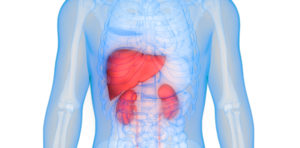Regular screenings done by a medical professional are key to detecting liver abnormalities before they escalate. The liver is of utmost importance with many key functions. If your liver were to malfunction or fail, the health consequences could quickly become fatal. According to the Center for Disease Control, there currently 4.5 million adults in the US with a liver disease diagnosis.
A Quick Look at The Liver
The liver is a large reddish-brown organ protected by the ribs which plays a key role in metabolizing drugs and most importantly, detoxifying end products of metabolism. It is located below the diaphragm and plays three critical roles in the body namely synthesis, storage, and detoxification.
The liver works in conjunction with other organs, such as the pancreas, intestine, and gall bladder to utilize the food you eat and expel unwanted waste products in the body. Liver complications could lead to kidney failure, liver cirrhosis, liver cancer, and other life-threatening conditions. Some things that could damage the liver include excessive alcohol consumption, diabetes, and certain medications.
Functions of The Liver
The liver performs many essential functions in the body which include:
- Storing vitamins and minerals
- Regulating blood sugar levels
- Removing bacteria from your blood
- Regulating blood clotting
- Maintaining hormone balances
- Producing cholesterol, enzymes, proteins, and bile
Who Should Get A Liver Function Test?
It is recommended that one does a liver test in the following scenarios:
- If you consume alcohol excessively
- If you have existing liver disease (to assess the effectiveness of treatment)
- If you are experiencing medical conditions such as high blood pressure and type 2 diabetes
- To assess for damage from hepatitis B and hepatitis C.
Liver Function Screening
A Liver Function Screening test is done by testing for abnormally high levels of two enzymes – Alanine Aminotransferase (ALT), and Aspartame Aminotransferase (AST) in the blood. These enzymes can find their way to the bloodstream when liver cells rupture.
There are several blood tests that are aimed at gauging the overall wellbeing of the liver. These tests are known as a hepatic panel and comprise of the following tests:
- Prothrombin Time
- Activated Partial Thromboplastin
- Albumin and bilirubin test
- Ceruloplasmin test
- Gamma-glutamyl transferase
- LDH-lactate dehydrogenase
- Alkaline phosphatase tests
Our team of highly trained experts has conducted this test on countless patients in the past. Making use of sterilized equipment and accurate testing methods, we are able to detect the absence or presence of both enzymes in the blood.
Risk Factors for Poor Liver Function/ Liver Disease
Our mobile testing team conducts check-ups via testing and questionnaires to see if there are certain factors, or behaviors, that could increase the likelihood of damage to the liver. These include:
- Obesity
- Type 2 Diabetes
- Heavy alcohol consumption
- Hepatitis
- Body piercings and tattoos
What Are the Signs That Your Liver May Be Deteriorating?
- Abdominal pain
- Abdominal swelling
- Skin and eyes turning yellow
- Dark urine or pale/grey-colored feces
- Lack of energy/fatigue due to slowing metabolism
- Bruising/bleeding more easily than normal
After A Liver Function Test, Your test results will be sent to you. Please be sure to share them with your primary care physician. If abnormal results are detected, you can expect your physician to begin a treatment plan consisting of lifestyle changes and/or medications. If you are experiencing any of the above symptoms, or possess any of the above-mentioned risk factors, please have your screening done as soon as possible.

